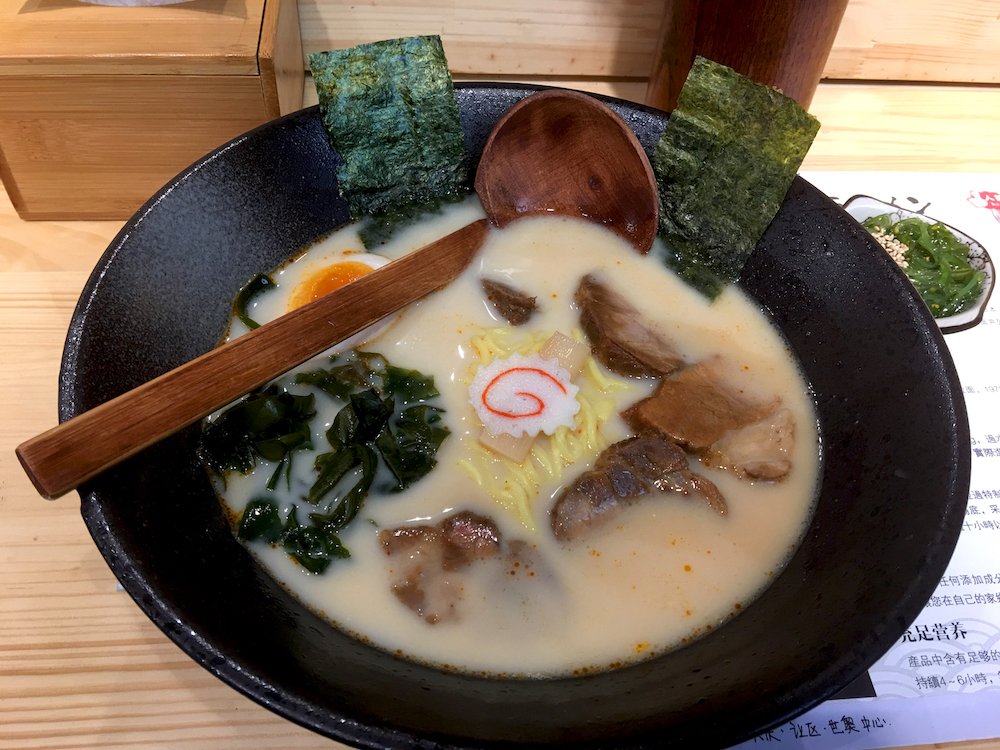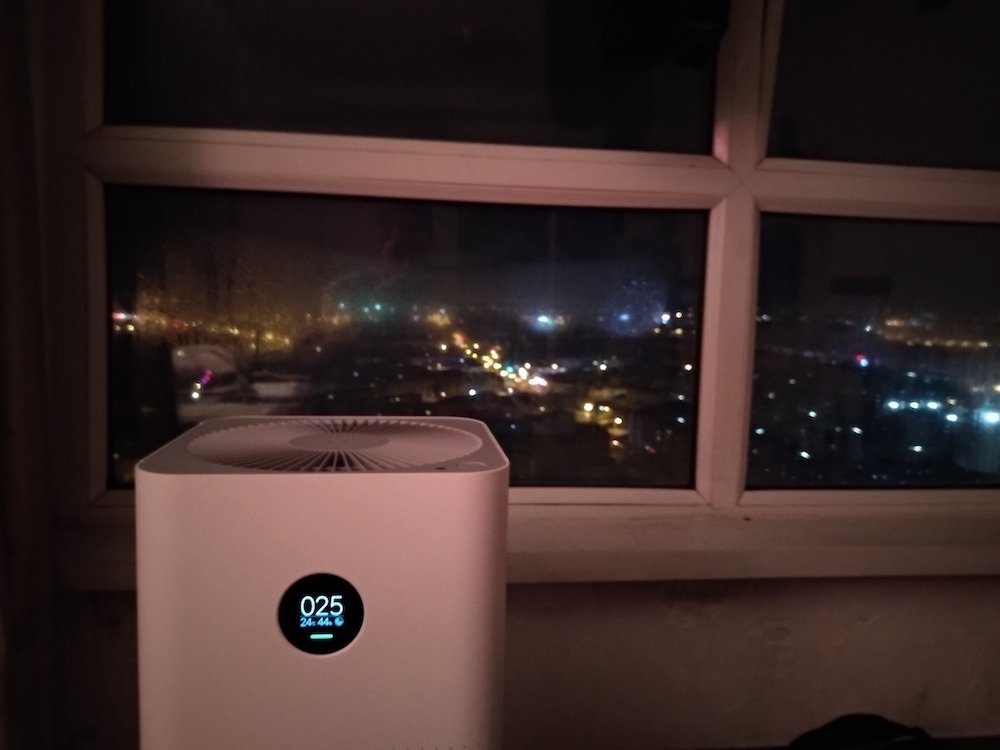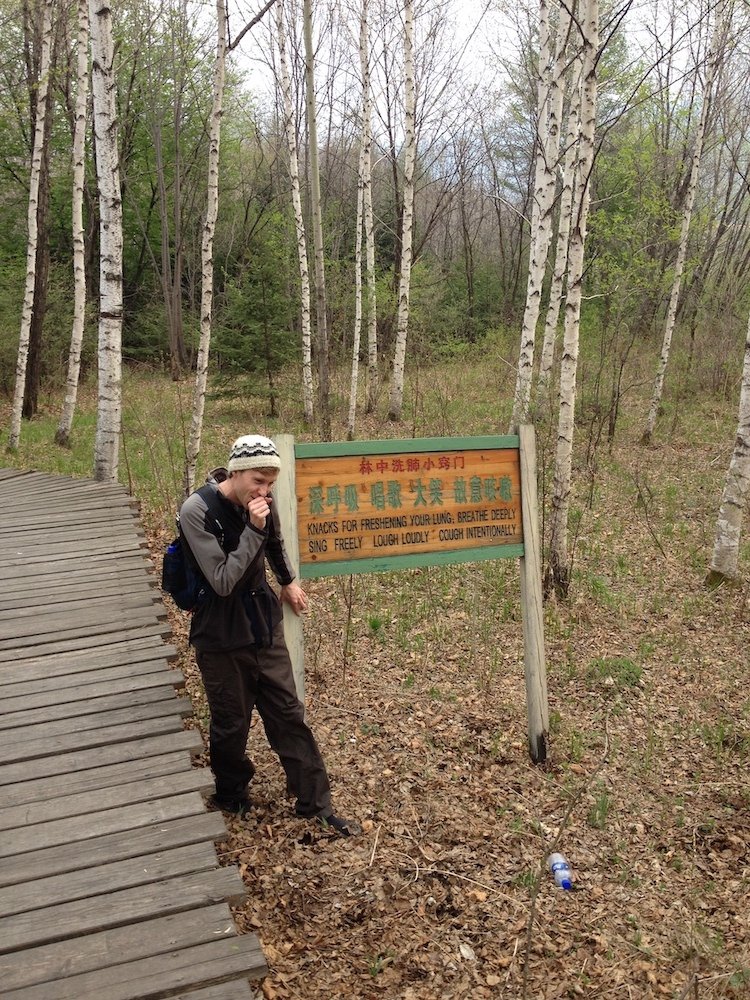How to Stay Healthy in China
Living in China has been the adventure of a lifetime for me, and when I left a year ago, I always felt deep in my heart that I would be back. I didn’t know it would be this soon, however. One of the reasons I love China so much - apart from the bright lights, food, and people - is the low cost of living. Although your dollar goes further there, the foil to this is a lower standard of living, which can present certain risks.
The majority of these risks are health-related, and they remain an obstacle for many TEFLers who end up opting for more modern countries like Japan or South Korea. It is important to take a long, hard look at these very real issues before you decide to move here. However, it’s possible to persist and live a healthy life here just as many of the over a billion people who live here do. While these risks are nothing to ignore, they don’t necessarily need to be dealbreakers if you do the following:
1. Use your common sense.
“If a hole-in-the-wall restaurant looks like a hepatitis buffet, don’t eat there.”
Although China is fraught with many health hazards that you don’t have to deal with in the Western world, avoiding most of them is as easy as using your brain. If the AQI (Air Quality Index) is terrible on a given day, stay indoors or wear a mask. If a hole-in-the-wall restaurant looks like a hepatitis buffet, don’t eat there. Get all of the appropriate vaccines under “Most Travelers” on the CDC website. Doing these easy things and keeping your wits about you will save you from the worst health-related grievances in China.
2. Don’t ignore the pollution.
Many foreigners will begin to ignore the pollution once they’ve been in China for a while. Oh, the AQI is only 95 today! No mask for me! While 95 is pretty low for much of China, it’s still many times over the World Health Organization standard for healthy air. Don’t be complacent - pollution can and will damage your body in the long term. Wear your mask when you should and invest in an air purifier for your apartment on Day 1…or at least after you’ve slept off the flight. I highly recommend these guys for cheap, effective filters that you can DIY even cheaper from parts on Taobao.
3. Cook regularly.
It is hard to narrow down what my absolute favorite part of life in China is because there really are so many great things about living there. The food is definitely in the Top 3. Chances are that your body will quickly adjust to the new bacteria that it will surely encounter in the food, and honestly, I have never had much trouble with food poisoning. I’m more worried about the artery-clogging effects of delicious dongbei cuisine. I try to prepare at least 2 nutritious meals a day to mitigate the extreme amounts of sodium, MSG, and sugar used in many of the sauces here.
4. Help out your immune system.
I can pretty much guarantee that you are going to catch something within the first week of teaching, no matter how many times you wash your hands. Children in China do not wash their hands very often, and once you do the math of 20 different classes times 25+ kids, your body’s defenses will be overwhelmed. To ensure that you can bounce back quickly, make sure you’re working stuff into your diet that will give your immune system the boost it needs, such as citrus fruits, yogurt, green tea, and many others that you can find on this list.
5. Develop an indoor workout routine.
“Pollution is a looming specter of any major Chinese city that will impact your life in some way if you live here.”
Pollution is a looming specter of any major Chinese city; it is 100% going to impact your life in some way if you live here long-term. Running is my preferred way to stay in shape, and there are days when running outside is simply not possible. To further complicate things, many gyms outside of Tier-1 cities (Beijing, Shanghai, etc.) do not have air filtration systems. So, that leaves your apartment. I have a playlist of several different cardio workouts and yoga routines that I can rely on if the day is a complete shutout. Try to develop a similar backup plan that you can follow in the comfort of your apartment with the air purifier running on full blast.
6. Keep yourself busy.
Especially when you’re adapting to different surroundings and overcoming challenges on a daily basis that you’re not normally faced with back home, mental health is just as important as physical health. Once the honeymoon period of living abroad wears off, things you once found exciting, novel, and endearing about China will begin to annoy you. Coupled with the extra free time - many language center contracts will be for 25 hours/week or less - it can really put you in a bad place. This is where the drinking begins, which may help in the short term but will make things worse down the road. Come to China with goals. Make time to study Chinese every day, learn how to play the guitar, or improve a skill you already have. Hobbies keep you grounded and productive when you’ve given up on braving the world outside of your apartment for the day.
7. Don’t drive.
The roads in China are probably nothing like you’ve experienced in the West. Most traffic laws seem to be considered optional, with the only de facto rule of the road being “me first”. Of course, the convenience, availability, and affordability of taxis make avoiding the road in China impossible, but these drivers know how it works. Almost every foreigner I know that owns a car or motorcycle has been in an accident. It’s almost never their fault, but that’s the problem: their subconscious mind is expecting the drivers around them to drive like Westerners. They don’t. Especially if you’re only there for a year, don’t bother with driving. It is not worth the risk.
Basically everything you should be doing already.
Well, with the exception of not driving or checking the AQI over coffee every morning. Doing the normal recommended things to live a healthy life will give you - most of the time - the same results in China. I’m not trying to downplay the hazards; they certainly exist. Pollution is one thing that is very hard to avoid. There will always be a slight food safety risk because the standards for cleanliness are just different here. But overall, it’s not nearly as scary as what you read in the media and you can generally live a healthy, happy life during your stay.
That’s the thing though. Most foreigners don’t stay very long, maybe a year or two on average. If you plan to stay in China for an extended period of time, say 5+ years…well, that changes everything. And that’s what we’ll talk about next week! ◉
Written by Seth Barham






